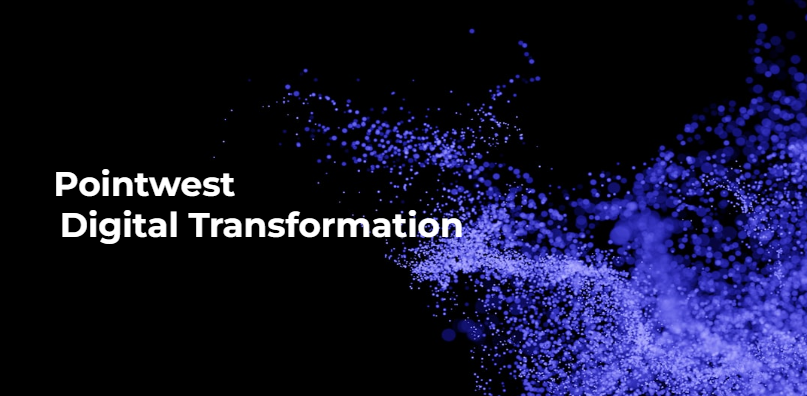Property and Liability (P&L) insurers are increasingly focusing on leveraging digital transformation not just as a tool for operational efficiency, but as a strategic asset to drive growth, enhance customer experiences, and secure a competitive edge in a crowded market.
There are five key lessons gleaned from successful digital transformation programs in insurance, that provide a comprehensive roadmap for those embarking on this crucial journey. Each lesson is a synthesis of effective practices, embodying principles such as customer-centric design, the pivotal role of data in personalization, and the adoption of agile methodologies in product development.
1. Championing Customer-Centric Design
The adage that ‘the customer is king’ holds truer than ever. The emergence of digital technologies has empowered consumers with information and choices at their fingertips, thus elevating their expectations for personalized and seamless experiences.
For P&L insurers, embracing a customer-centric design means reimagining processes, products, and services from the ground up with the customer in mind. This approach involves conducting thorough research to understand customer needs, preferences, and pain points, followed by the design and development of solutions that are not only intuitive and accessible but also cater to the individualized needs of each customer.
The importance of customer-centric design extends beyond product development to encompass every touchpoint in the customer journey from initial engagement through claims processing and beyond. A customer-centric approach also paves the way for innovation, encouraging insurers to continuously explore new ways to meet and exceed customer expectations, thereby securing their position as leaders in the digital age.
A lot of insights can be gleaned from popular online shopping platforms that allow customers to browse product catalogs, add items to a cart, and purchase products with just a few clicks. The same intuitive approach is being implemented by P&L insurance companies as they try to launch web-based and mobile applications geared towards ensuring seamless customer experience.
Yes, insurers that excel in providing a superior customer experience distinguish themselves in a competitive marketplace, fostering customer loyalty which in turn drives growth.
2. Leveraging Data for Personalization
Data personalization goes beyond merely customizing communications or recommendations; it involves using deep insights derived from customer data to develop products and services that speak directly to the unique needs and preferences of individuals.
The cornerstone of effective personalization is the collection, analysis, and application of data. By harnessing the power of advanced analytics and big data technologies, insurers can uncover patterns and trends within vast datasets, translating these into actionable insights. This enables the creation of personalized insurance products, tailored pricing models, and targeted marketing campaigns that resonate with specific customer segments. A lot of insurers also employ personalized reminders and notifications especially for policy renewals, newly-launched payment schemes, and channels to keep their clients well-informed.
Still, P&L insurers must see to it that their data practices not only adhere to regulatory requirements but also respect customer privacy and trust. By striking the right balance between personalization and privacy, insurers can enhance customer engagement and satisfaction, thus ultimately driving loyalty and profitability in a competitive digital landscape.

3. Embracing Agile Methodology in Product Development
With emphasis on iterative development, cross-functional teams, and frequent and early customer feedback an agile approach offers a powerful framework for insurers to navigate the complexities of digital transformation. Adopting an agile approach enables insurers to rapidly prototype, test, and refine products in response to changing customer needs and market dynamics.
Agile product development fosters a culture of collaboration and innovation, bringing together developers, designers, and business stakeholders in a cohesive effort to deliver value to customers. This collaborative environment encourages open communication and continuous improvement, ensuring that products are not only delivered faster but also meet the highest standards of quality and relevance. No wonder a growing number of organizations these days are training and recruiting Scrum Masters and Product Owners who can guide their agile teams toward the completion of their in-house projects.
Furthermore, the agile methodology facilitates the effective management of risks in digital transformation projects. By breaking down projects into manageable sprints and focusing on delivering functional increments, insurers can minimize the potential for large-scale failures adapting their strategies based on real-world feedback and outcomes.
Embracing agile practices positions insurers to respond adeptly to the fast-paced digital landscape, leveraging opportunities for innovation and competitive advantage.
4. Fostering a Culture of Innovation
Digital transformation is not just about technology; it’s equally about cultivating a mindset and culture that embraces change, experimentation, and continuous learning.
For P&L insurers, building an innovation culture means encouraging new ideas, failures are viewed as learning opportunities, and employees are empowered to take initiative. This involves investing in research and development, encouraging cross-disciplinary collaboration, and staying attuned to emerging trends and technologies that could impact the insurance sector. Some organizations also facilitate Design Thinking sessions that will help their personnel identify common customer painpoints and identify creative ways by which they can better respond to their clientele. Indeed insurers that foster such a culture are better equipped to innovate in response to evolving customer expectations and market conditions, securing their leadership in the digital age.
In addition, innovation culture is crucial for attracting and retaining talent. In an industry undergoing rapid digital transformation, having a team that is agile, creative, and technically proficient is a key asset. By promoting a culture of innovation, insurers not only enhance their capacity for digital transformation but also position themselves as attractive employers for top talent, further driving their competitive edge.
5. Navigating the Regulatory Landscape
Digital transformation in the insurance sector unfolds within a complex regulatory landscape, which is characterized by evolving standards and requirements. Navigating this landscape requires a proactive approach to compliance, ensuring that digital initiatives align with regulatory expectations while continuing to innovate and provide value to customers.
Insurers must stay abreast of regulatory changes, interpreting how these might impact their digital strategies and operations. This involves regular engagement with regulatory bodies, participation in industry forums, and collaboration with legal and compliance experts. By integrating regulatory considerations into their digital transformation efforts, insurers can mitigate risks, avoid potential penalties, and build trust with customers and stakeholders.
Moreover, a proactive approach to compliance can uncover opportunities for differentiation and innovation. For example, leveraging regulatory technology (RegTech) solutions can enhance efficiency, improve risk management, and provide insights that drive strategic decision-making. In the local setting, compliance with RA 10173, more commonly known as the Data Privacy Act of 2012 has affected the way most insurers perform business especially since they are required to handle customer data with utmost confidentiality. In a landscape where trust and compliance are paramount, insurers adeptly navigating the regulatory environment can strengthen their market position and drive long-term success.

Pointwest recognizes the fact that digital transformation can mean different things to different organizations. With this principle in mind, we champion the vision of its partners by building tailor-fit digital solutions geared towards addressing urgent business needs and requirements.
For example, a leading HMO Healthcare provider in the Philippines looked for creative ways to better respond to the needs of its policyholders. The organization wanted to make it easier for its customers to gain access to their extensive network of hospitals and healthcare providers in various places of the country. Hence, it commissioned Pointwest to develop a mobile application for its members.
The mobile application assists policyholders in registering their membership cards so that they can browse through nearby clinics and hospitals and take advantage of the services offered by partner doctors and health facilities of the HMO provider. After the successful launch of the mobile application, Pointwest continued its partnership with the healthcare insurance firm to see to it that the latest technology stack is employed by the digital tool thus addressing potential issues of incompatibility and technology obsolescence. Additional features and functionalities were evolved to make the mobile app more responsive to the needs and requirements of its target clientele.
Another example is the Philippines-based office of a global insurance company that was able to set up its front- and back-end digital components to support its overall business operations. However, as the usage of these components started to scale up, they realized the need to integrate all of their existing tools so that they could provide timely and accurate information to their customers.
To solve this problem, Pointwest made use of application programming interfaces (APIs) that connected customer-facing solutions with back-end technologies that support eKYC, Core Insurance Systems, Customer and Financial Data Warehouses, etc. We built the necessary integrations that enabled the insurer to provide close to real-time information about customer transactions and activities. This in turn helped boost the overall customer experience offered by the insurance provider.
Indeed the journey towards digital mastery in the insurance sector is a multifaceted endeavor requiring a strategic approach that encompasses customer-centric design, data personalization, agile methodologies, innovation culture, and regulatory compliance.
The five key lessons mentioned above all drawn from the industry’s most successful digital transformation initiatives provide a roadmap for P&L insurers, like you, to navigate the complexities of the digital landscape. By prioritizing the customer experience, leveraging data for personalized offerings, embracing agility in product development, fostering a culture of innovation, and navigating the regulatory landscape with foresight and adaptability, insurers can unlock new avenues for growth and competitiveness.
For over two decades, Pointwest has been partnering with some of the world’s largest and most recognized companies including local and international insurers to bridge the gap between today’s challenges and future possibilities, implementing tailored solutions that accelerate digital transformation with precision and speed. Explore how Pointwest can empower your business. Connect with us today at [email protected] to unlock your growth opportunities.




